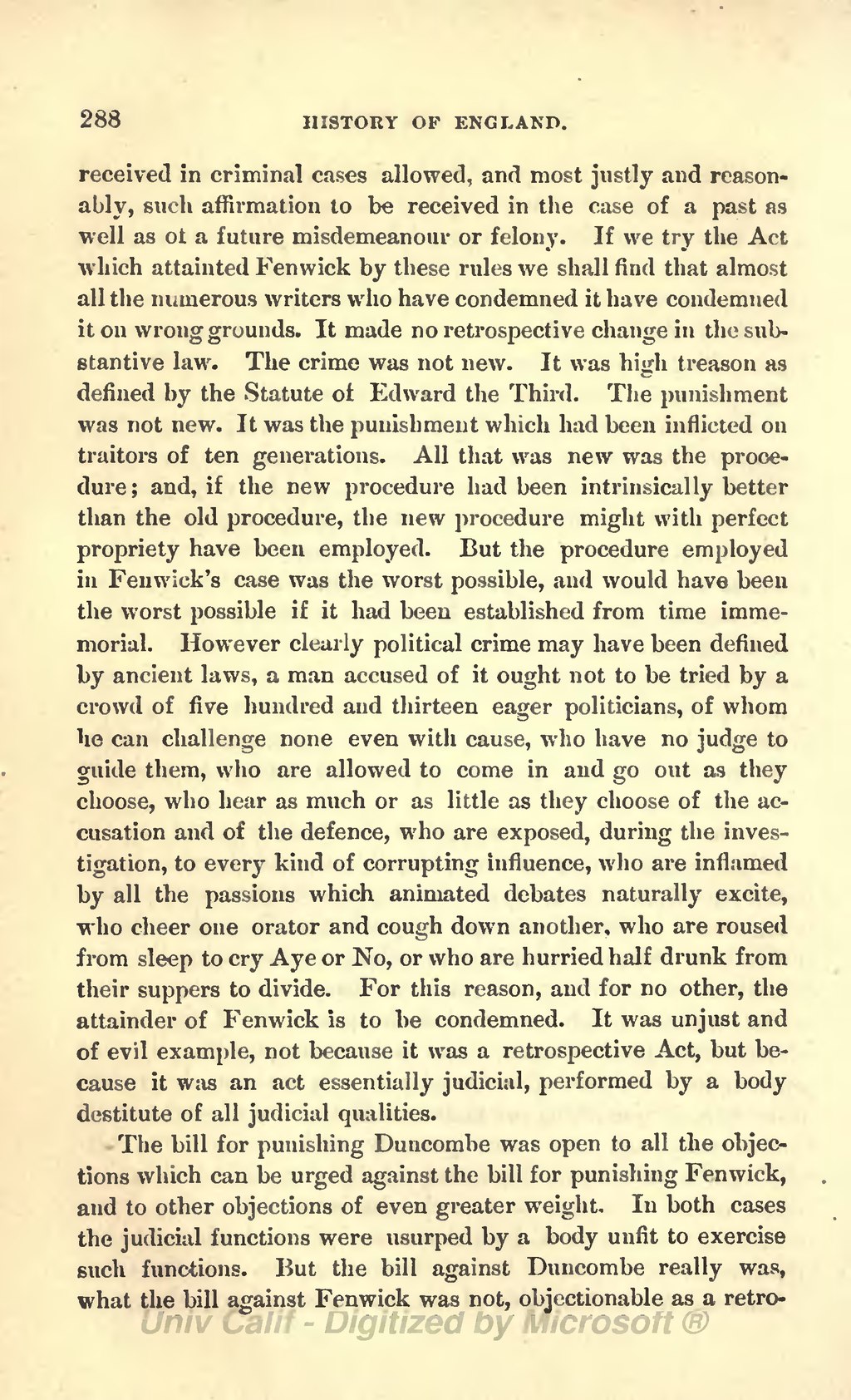received in criminal cases allowed, and most justly and reasonably, such affirmation to be received in the case of a past as well as of a future misdemeanour or felony. If we try the Act which attainted Fenwick by these rules we shall find that almost all the numerous writers who have condemned it have condemned it on wrong grounds. It made no retrospective change in the substantive law. The crime was not new. It was high treason as defined by the Statute of Edward the Third. The punishment was not new. It was the punishment which had been inflicted on traitors of ten generations. All that was new was the procedure; and, if the new procedure had been intrinsically better than the old procedure, the new procedure might with perfect propriety have been employed. But the procedure employed in Fenwick's case was the worst possible, and would have been the worst possible if it had been established from time immemorial. However clearly political crime may have been defined by ancient laws, a man accused of it ought not to be tried by a crowd of five hundred and thirteen eager politicians, of whom he can challenge none even with cause, who have no judge to guide them, who are allowed to come in and go out as they choose, who hear as much or as little as they choose of the accusation and of the defence, who are exposed, during the investigation, to every kind of corrupting influence, who are inflamed by all the passions which animated debates naturally excite, who cheer one orator and cough down another, who are roused from sleep to cry Aye or No, or who are hurried half drunk from their suppers to divide. For this reason, and for no other, the attainder of Fenwick is to be condemned. It was unjust and of evil example, not because it was a retrospective Act, but because it was an act essentially judicial, performed by a body destitute of all judicial qualities.
The bill for punishing Duncombe was open to all the objections which can be urged against the bill for punishing Fenwick, and to other objections of even greater weight. In both cases the judicial functions were usurped by a body unfit to exercise such functions. But the bill against Duncombe really was, what the bill against Fenwick was not, objectionable as a retrospective
